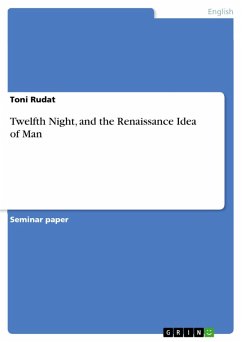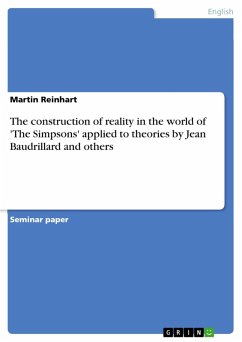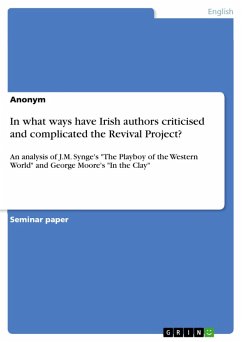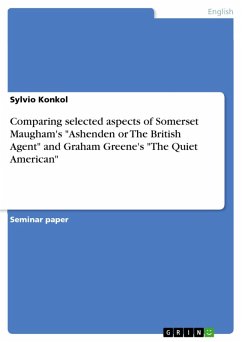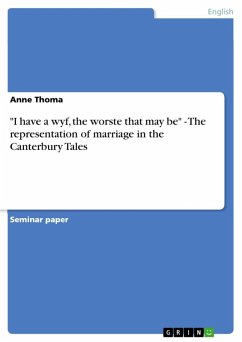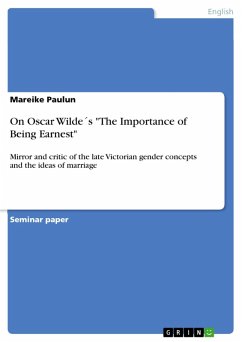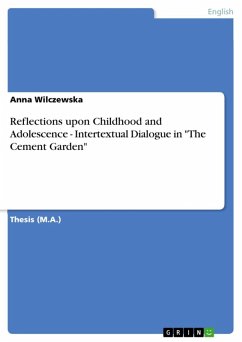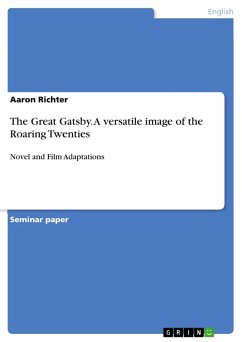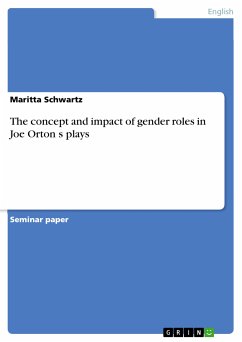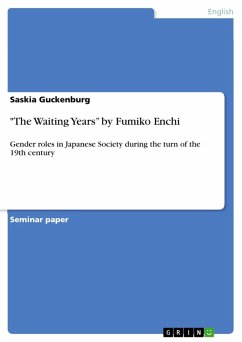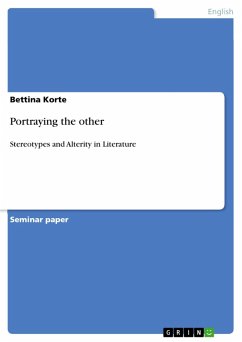
Portraying the other (eBook, ePUB)
Stereotypes and Alterity in Literature
Sofort per Download lieferbar
Statt: 17,95 €**
15,99 €
inkl. MwSt. und vom Verlag festgesetzt.
**Preis der gedruckten Ausgabe (Broschiertes Buch)
Alle Infos zum eBook verschenkenWeitere Ausgaben:

PAYBACK Punkte
0 °P sammeln!
Seminar paper from the year 2007 in the subject English Language and Literature Studies - Literature, grade: 1,7, Bielefeld University (English Department), course: Meeting the "Other", language: English, abstract: Without Alterity or Diversity life would be a boring monotony. To experience new facets of life or society we need help. Stereotypes are helpful. They give us the possibility to organize our world. Everything is put into its place, neat and tidy. As long as they are an instrument which builds only the base for further recognition and evaluation of human beings they are useful. When ...
Seminar paper from the year 2007 in the subject English Language and Literature Studies - Literature, grade: 1,7, Bielefeld University (English Department), course: Meeting the "Other", language: English, abstract: Without Alterity or Diversity life would be a boring monotony. To experience new facets of life or society we need help. Stereotypes are helpful. They give us the possibility to organize our world. Everything is put into its place, neat and tidy. As long as they are an instrument which builds only the base for further recognition and evaluation of human beings they are useful. When they become our only source of getting acquainted with other human beings, when they are fixed and immobile, stereotypes become a destructive force. "A "stereotype" is a generalization about a person or group of persons. We develop stereotypes when we are unable or unwilling to obtain all of the information we would need to make fair judgments about people or situations. In the absence of the "total picture," stereotypes in many cases allow us to "fill in the blanks." Our society often innocently creates and perpetuates stereotypes, but these stereotypes often lead to unfair discrimination and persecution when the stereotype is unfavorable. "( Gary M. Grobman) Stereotype as a general term shows a 'clear' ambiguity, therefore I want to categorize them into positive and negative stereotypes. Positive is the one which is a first means of evaluation without prejudices and with good intentions, negative is the one which is the only means of prejudicial evaluation. It is easier to learn and experience novelties when there is a kind of guiding light. The following pages will show that learning with open eyes and sympathy for the 'Other' first needs stereotypes. Two different parts can be correlated. Sometimes even if two similar, but slightly different parts merge, like Josephs Conrad's goddesses. When guidance is needed, which is always the case when we encounter new spheres, in literature or in life, stereotypes can be helpful, as long as we are aware of the fact that they are just the first step into a new world. How stereotypes in literary texts are a means to develop positive or negative feelings for a figure, how flexible they were created and in which way a figure developed I want to show with a gender-orientated, reader-responded view on three texts written by three authors: Joseph Conrad's Heart of Darkness will provide the 'goddesses', The Passage to India written by EM Forster the 'blue-stocking' and Rose Tremain's The Colour the 'new' woman.
Dieser Download kann aus rechtlichen Gründen nur mit Rechnungsadresse in A, B, BG, CY, CZ, D, DK, EW, E, FIN, F, GR, HR, H, IRL, I, LT, L, LR, M, NL, PL, P, R, S, SLO, SK ausgeliefert werden.




